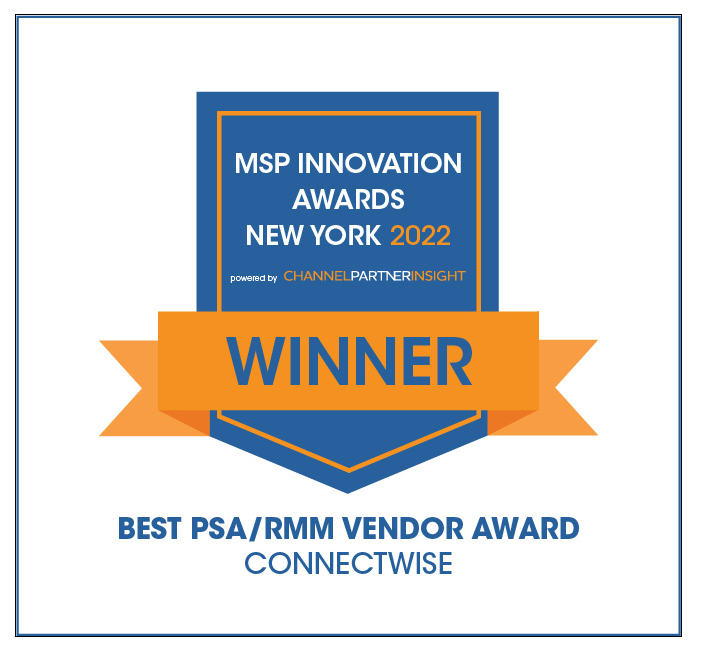Maintaining efficiency and profit margins while bridging the IT talent gap
In my current role at ConnectWise, I lead a team that’s responsible for all new product purchases by our 1000 largest partners. As such, I have the privilege of spending a lot of time talking wth some very mature MSPs in the United States and Canada.
Whether it’s on a Microsoft Teams call or at one of the various events we host or attend, getting to interact with our valued partners is the most rewarding aspect of my job. Every conversation presents an opportunity to learn something about the industry and the business model we serve.
Even more interesting is when I overhear a group of MSP owners, executives, or service managers talking about their businesses. Our community is very open to sharing, and typically, they’re willing to communicate what’s going well and what challenges they may be facing. From how to be more efficient and profitable, to minimizing risk, packaging services, and introducing new offerings, there’s no shortage of great dialogue. In the last couple of years, I’ve noticed a pattern in conversations. The two topics that come up most frequently are:
- How do I keep my customers secure and make money doing it?
- How do I attract and retain talent for a price that works inside my budget?
The talent crunch is impacting nearly every industry around the globe, and it’s hitting businesses of all sizes—from SMBs to mid-market, and even large enterprises. Both the cost and availability of resources, especially skilled technical labor and individuals with cybersecurity expertise, result in pressure on the MSP, which is trying to staff appropriately for a cost that doesn’t reduce service gross margin or wipe out their profitability.
So, how can you accomplish this despite the pressure?
Identify your core offering
As a best practice, many MSPs offer some form of all-inclusive package—commonly called the Gold, Diamond, Premium, Business, or Premier package. Regardless of the name, best-in-class providers have 90% or more of their partners on this plan. They incentivize their sales reps at a higher rate for signing partners up for this plan, compared to a lower tier or a la carte option. These providers also standardize their technology stack to accommodate this plan and optimize internal processes to maximize service gross margin.
These all-inclusive packages almost always include core offerings such as:
- Remote monitoring and management (RMM)
- Patch management
- Network and infrastructure management
- Help desk and ticketing services
- Business continuity and disaster recovery (BCDR)
- Antivirus
- Managed firewall
Many providers are also now including services such as:
- Endpoint detection and response (EDR)
- Email management, security, and backup
- Cloud app security
- SIEM
- Multi-factor authentication (MFA)
- Risk assessments and dark web monitoring
Hardware sales, project work, hosting services, custom application development, and a variety of other services can also be added to round out the full stack.
This robust package offering can present a daunting challenge. Diverse technical skill sets are required to manage these services well for your customers and to ensure you’re highly profitable while doing so.
Identify what you do best
One way to minimize the strain these varied services can place on an organization is to find a niche that you can service better and more efficiently than your competitors. Some MSPs have focused on a specialized industry that they began to understand intimately as they matured. Some examples of such specialized industries include:
- Healthcare
- Hospitality
- Government
- Dental
- Education
- Financial services
- Non-profit
- Legal
An area of specialization provides MSPs with a competitive advantage. They can offer a unique insight into their customers’ needs that competitors cannot. You can also set up specialty offerings, compliance requirements, and processes that are tailored to your customer base.
The downside of specialization can be twofold:
- You become more susceptible to economic downturns that disproportionately impact your chosen industry. For example, think about the MSPs who were focused on hotels and restaurants during COVID.
- You may have to turn down business that’s outside of your area of expertise to avoid breaking.
As such, most MSPS strike a balance between specialization and generalization to minimize these potential negative impacts. Generalization, however, leads us back to the issue of being able to staff appropriately.
Identify a strategic partner to fill the gaps
Even if you are specialized in a space where you have a unique level of expertise, it may still be challenging to staff the correct technical talent to adequately serve your customers. It’s always valuable to consider what is the highest and best use of your most valuable, costly resource—time.
Time is a zero-sum game. If your technicians are spending their time managing backups, they aren’t spending time doing site surveys for a potential new partner. If they are focusing on after-hours NOC care, they may not be keeping your customers secure. Any number of examples are relevant here.
In addition, less desirable aspects of the role, such as being on call after-hours or consistent over utilization can have a detrimental impact on morale and retention. The costs of recruiting, onboarding, and training can add up to an individual’s entire annual salary if not kept in check, and you are often forced to pay more for less experienced talent. Retention is king in the MSP space.
Historically, a majority of MSPs have been focused on maximizing efficiency through automation and integration. We still fully support this and believe in it wholeheartedly.
A large number of MSP partners we work with are turning to ConnectWise as a strategic partner to fill in talent gaps that have become too difficult or costly to staff in-house. The goal here is not to replace what they do best but to offload some of the mundane remedial tasks that consume time and provide little differential value.
Some common examples include:
- 24/7 NOC server care
- Inbound T1/T2 help desk support
- Managing backup deployments and compliance
- 24/7 SOC monitoring of MDR and SEIM alerts
- Security incident response services
- Outsourced 40-hour-per-week technicians
- Outsourced project work
This has become a viable, profitable model for a great many mature MSPs. Why?
- They get the advantages of a standardized service level without paying the high cost for in house labor.
- The technicians they do employ are not overworked or managing after-hours alerts.
- They can add new customers and scale without the pressure to increase their head count.
- The cost per unit of outsourced support is lower than what they would pay an in house technician.
If you are interested in learning more about how ConnectWise can help you be more efficient and minimize risk, whether that’s through best-in-class software applications or as a strategic partner for labor needs, join us for a live demo or contact your account team at any time.
We appreciate the opportunity to demonstrate what other providers are doing to be more successful in their own business.


